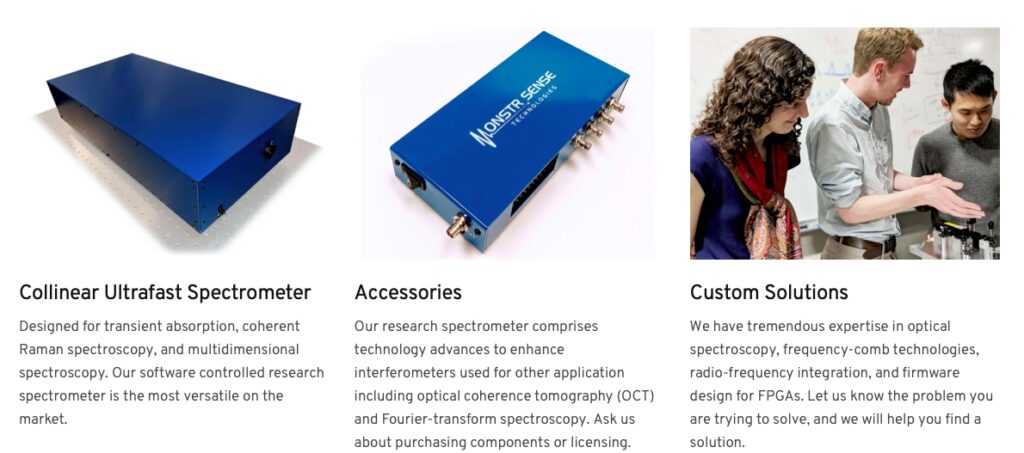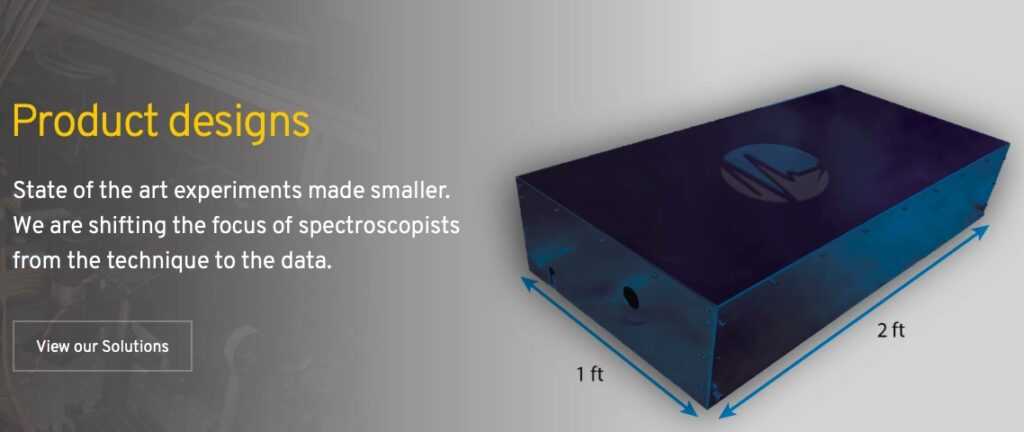What is happening with the newest cohort of tech and life science startups spun out of intellectual property invented at the University of Michigan? We've heard in recent times that the university has poured resources into programs for students interested in turning inventions and software into startups rather than taking a traditional job after graduation, but it seems spotty which majors and areas of the university are involved beyond computer science. We recently were introduced to several new startups navigating the entrepreneurial process straight out of college, and wanted to bring you the story of one small company and how it navigated through the maze of startup development from within the academic environment. It's just one path to entrepreneurship in a growing tech and startup scene in Michigan, but one that is often hidden behind closed doors.
Eric Martin is Co-Founder and President of Monstrsense, a startup from the latest round of University of Michigan startups founded in the last year. He says this all started when he was a PhD student at the University of Michigan working on spectroscopy. "I was doing fundamental science," he says. "A number of researchers wanted to do the same thing, so we teamed up." The result? A collinear single-beam spectrometer, or a tool that is capable of measuring semiconductors, molecules, and bacteria. "We create optical measurement tools for analyzing mixtures and measuring ultrafast dynamics at the nanoscale," Martin explains. According to Monstrsense: "We offer the only commercial resonant transient absorption spectroscopy that is capable of being coupled into a microscope. Our flagship product is a multi-functional collinear (single-beam) spectrometer that can be used with just about any ultrafast laser and can also be coupled into a microscope. This spectrometer is useful for measuring gas phase and solid state systems; it also has a unique prowess in discerning optical features in spectra that would generally be washed out by spectral inhomogeneity."
Ultra-fast spectroscopy is fairly niche, according to Martin. "The traditional ways of doing it are complex so it hasn't made it out of academic labs. The use is this: semiconductors made of silicon are being pushed to their limits. New quantum dots on a single layer can do the same job. "Graphene is talked about a lot," Martin says as an example of material that could move beyond silicon for faster computer processing and better sensors in biomedical devices. Spectrometers such as Monstrsense are developing can be used to inspect these nano-scale materials for better defect inspection. "Many processes to find defects won't work in these new materials," Martin explains. "Spectroscopy is a powerful way to measure what's going on in these materials. That's because the Monstrsense spectrometer interfaces with a microscope to work on a small scale, and because the new materials being used in semiconductors and processing units are sensitive to light, which means that defects can be inspected via light. "It shows up as an energy shift," Martin says.
Monstrsense in its earliest form was put through The University of Michigan Office of Tech Transfer, which licenses out intellectual property and inventions created or discovered by faculty and researchers. "My advisor sent me a list of classes from the Center for Entrepreneurship," Martin says of how he ended up in the program for entrepreneurs. "I took a couple of those, plus an introduction to intellectual property law that was run in conjunction with the Law School. I learned a lot about patents and trademarks."
Martin says he was getting excited about his business idea at that point. "We used my project and a few others as a test case," he says. "Three lawyers helped me develop the concept, to figure out is this intellectual property valid?"
Martin says he learned about the customer discovery process also at U of M, through a class and a program hosted by Ann Arbor SPARK. "We talked to potential customers and explored markets," he says. "When I graduated in 2018, my co-founder Steve Cundiff and I applied for a grant called the Advanced Grant, which Michigan State University manages. We applied to build the spectrometer.
The spectrometer fit on an optical table that is 6' x 16'. Martin says the team needed to miniaturize it to 1' x 2' so they could take it to customers and trade shows. "For a year I stayed as a post-doc at the university to build the prototype," he says, "which was super useful. There is a lot of stress building a new company, but I didn't have to worry about financial stability because of the grant."
The company picked up its first customers via trade shows, and won a fellowship to continue their work with additional funding. Now the budding company is looking to hire their first employee, to develop hardware for the spectrometer. "We need someone good at CAD," Martin says of his decision to hire someone who is good at something he doesn't focus on. Martin does more software, and contracts out the electronics. "I'm a physicist so I bumble around in CAD," he laughs. "Our first employee will be doing engineering work, and interfacing with customers.
You can learn more about this kind of spectroscopy from this article written by Eric Martin and Steve Cundiff that was published in The Photonics Spectra.
The Resources page of the Monstrsense website has information including technical papers if you would like to dig in to the science.




